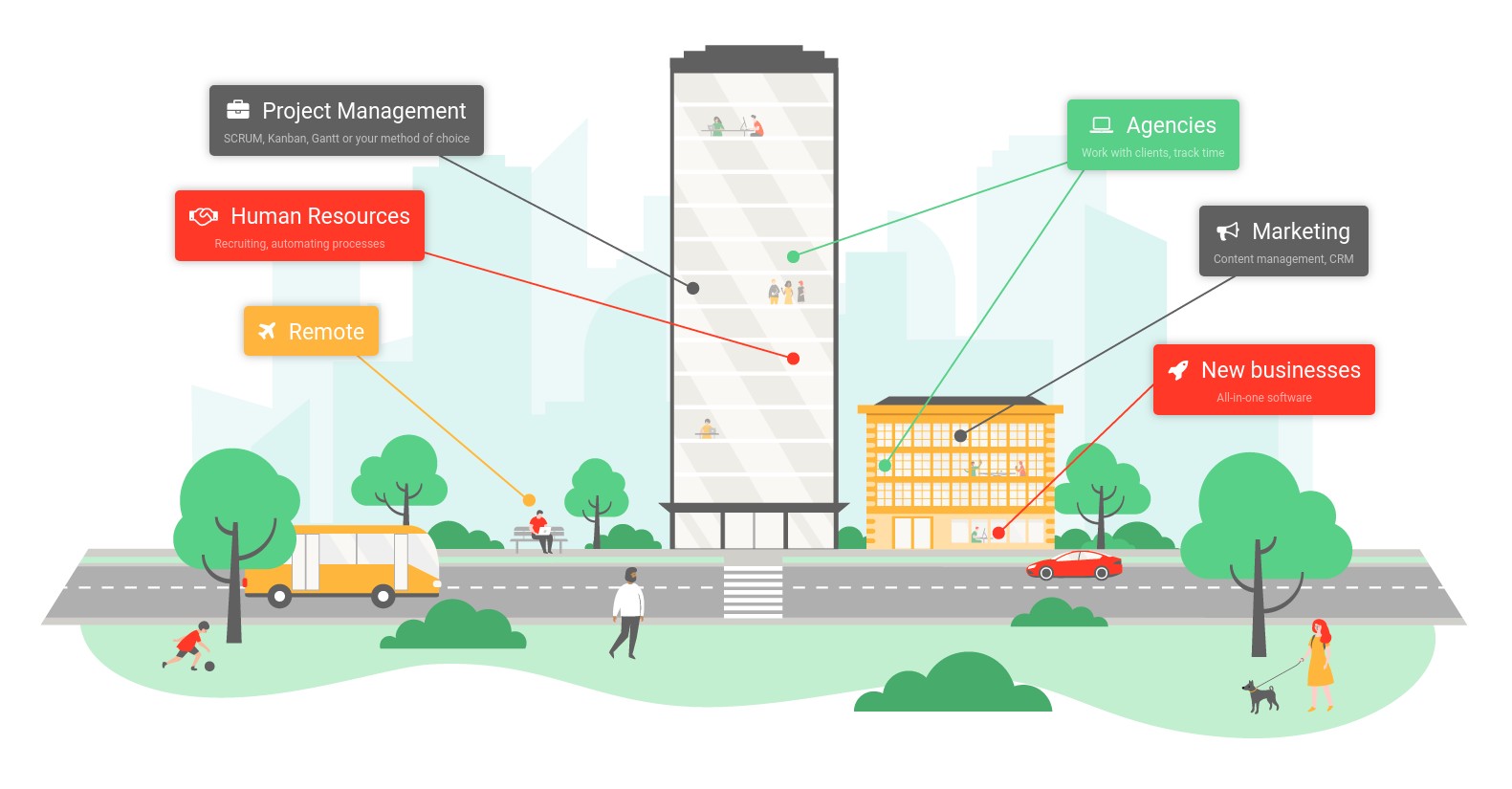New management era: Digital, distributed, collaborative
Long before the coronavirus outbreak forced companies into remote work overnight, the workplace was becoming more distributed and digital. Take our company, for example.
At Digicoop, we have been a remote-first team since our founding in 2015. Even though we have a physical office in Paris, where we like to get together from time to time, everyone is free to work from anywhere. We are paperless and all projects are managed using Kantree, our flexible work management and collaboration platform.
We don’t expect that more traditionally-organized businesses will go fully remote. However, we do believe that companies of all sizes can benefit from a more flexible work environment. In fact, in 2020 we have seen a 30% increase in the number of Kantree Enterprise users, i.e. those companies who have adopted Kantree as their go-to platform for team collaboration and managing a wide range of projects, from sales to IT to recruiting.

New ways of working are here to stay
The past few months have accelerated the changes already happening in the workplace, i.e. a new era of work management. Going forward, we are likely to see more companies adopt a more dynamic work environment with flexible in-house and remote teams, work that is digitized and accessible wherever there is a WiFi connection, and management models based on trust, more autonomy, accountability, and team collaboration.
Prior to the pandemic, corporate managers hesitated to relax workplace rules, citing a possible loss in productivity and the inability to monitor performance. However, recent studies debunk that myth:
According to research from Stanford University, employees who work remotely showed a 13% improvement in performance. Another study by Stanford suggests that the pre-Covid-19 stigma associated with telecommuting has largely disappeared.
A 2019 survey by remote talent platform, Upwork, indicates that as many as 73% of teams will include remote workers within ten years. A key factor in the findings is the growing number of digital-native Millennial managers, who are more likely to embrace remote work, workplace flexibility, agile methods, and online tools.
A new generation of digital tools
The post-coronavirus workplace – more digital, distributed, and collaborative – calls for a new generation on online tools, otherwise companies will be stuck with limited solutions: clunky spreadsheets, tiresome status meetings or calls, email over-dependence, even post-it notes.
Successful digital transformation and working with fully or partially-remote teams, requires the right mix of digital tools: asynchronous (e.g. email or discussion boards) where team interactions don’t happen all at the same time, synchronous (such as instant messaging, video conferencing) for real-time communication, and project management platforms.
Adopting these tools won’t be possible without the buy-in of everyone across the board, from upper management to employees at every level. There needs to be an active effort to support the switch, in order to avoid frustration and reverting to old methods. Guidelines, training sessions for staff and management, and a learning-oriented culture are key.
Digital transformation may be a daunting and time-consuming task, which is why having a long-term strategy and choosing the right digital tools is important. When developing Kantree, we made sure that it would allow business users to digitize their work by themselves, removing the need to invest in several custom solutions.

New management approach
It’s not enough to provide these solutions, which many businesses hurriedly did at the beginning of the pandemic. The changing workplace needs an environment where employees are empowered to take control of their processes.
At Digicoop, we operate as a worker cooperative (i.e. a company owned by employees) and Kantree’s functionality comes directly from our co-op values: flexibility, collaboration, shared responsibility, and self-management. We believe that with this level of autonomy, teams from all sorts of companies will feel more confident and deliver better outcomes, allowing organizations to fully benefit from their talent and collective intelligence.
We believe, based on our experience, that this new management approach will lead to employees who feel more invested in their work and are therefore less likely to leave, lowering costs associated with employee turnover. It will also help attract top talent from a global pool of candidates, helping companies stay competitive in the post-coronavirus world.
Try Kantree free for 15 days and start managing projects on your own terms. Questions? Email us.
The article was first published on Management 3.0 and has been edited for our blog.